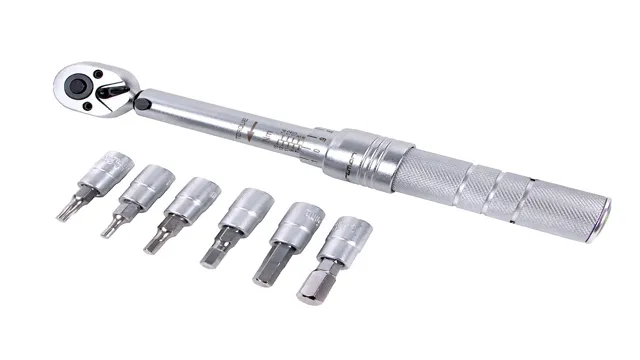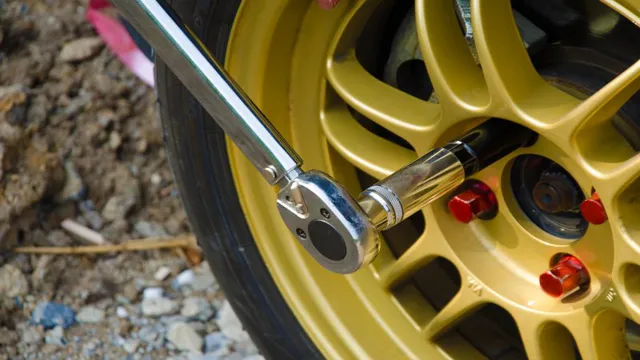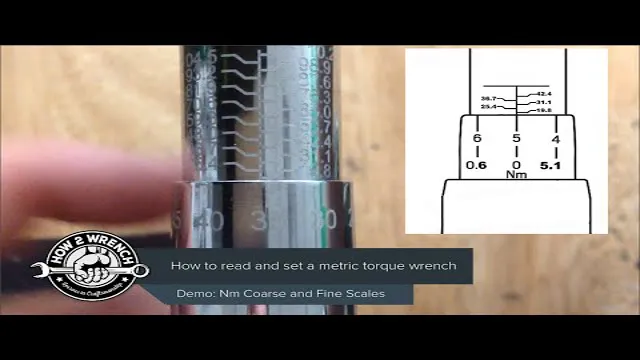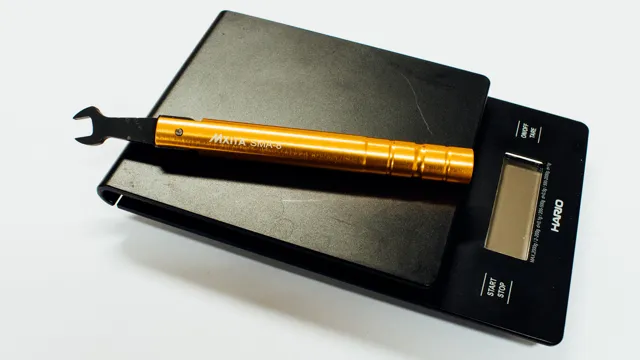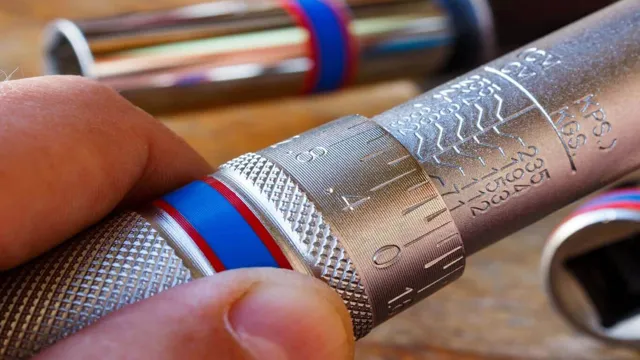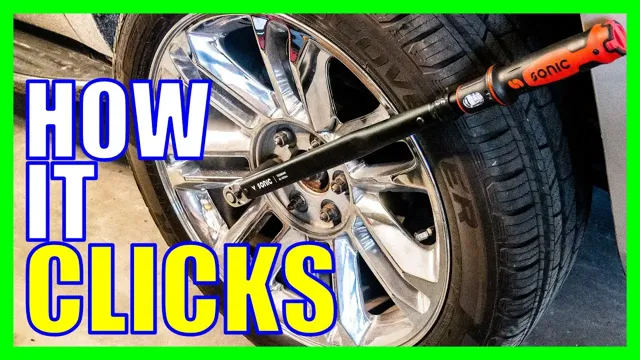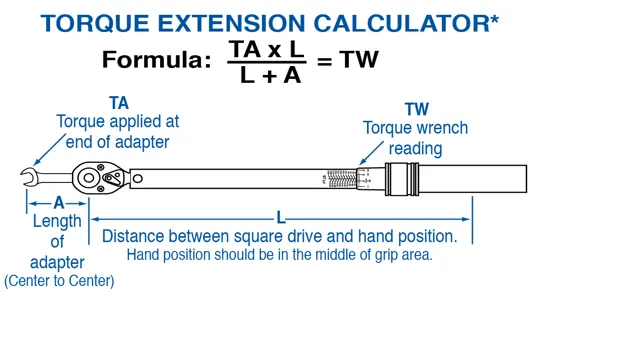What Type of Torque Wrench is Most Accurate? A Comprehensive Guide
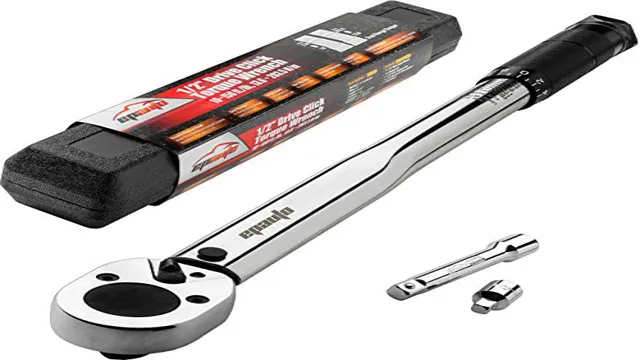
Do you ever find yourself struggling to get the right torque on your bolts? It can be frustrating when you’re trying to fix something, only to have your efforts fall short due to inaccurate torque measurements. That’s where torque wrenches come in. Torque wrenches are designed to provide precise torque measurements, ensuring that your bolts are tightened to the appropriate level.
But with so many different types of torque wrenches to choose from, how do you know which one is the right fit for your needs? In this blog, we’ll explore the different types of torque wrenches and provide some tips on how to choose the most accurate one for your specific application. From beam and click-type wrenches to digital and micrometer-style options, we’ll help you navigate the world of torque wrenches and find the perfect tool for your toolbox.
Understanding Torque Wrench Accuracy
When it comes to torque wrenches, accuracy is key. The most accurate type of torque wrench is a digital torque wrench. These wrenches have a clear digital display that shows you the exact torque being applied, giving you the confidence that you’re tightening to specifications.
Additionally, digital torque wrenches are typically more consistent than their analog counterparts, which can vary in accuracy between uses. By contrast, click-type torque wrenches, which are among the most common, rely on a mechanical click to alert you when you’ve reached the preset torque level. While click-type wrenches can be accurate, they may not be as consistent as digital models.
When choosing a torque wrench, consider the type of work that you’ll be doing and the level of accuracy that you need. Investing in a high-quality, accurate torque wrench can help you achieve better results in your work and ensure that your fasteners are tightened to the right torque value every time.
What Is a Torque Wrench?
If you’re into DIY home projects or work in the automotive industry, then you must have heard about torque wrenches. Torque wrenches are a special type of tool used to tighten bolts and nuts to a specific torque value. It’s essential to use a torque wrench because tightening bolts or nuts beyond the recommended torque value can lead to damaged or broken parts.
The most critical aspect of using torque wrenches is their accuracy. The accuracy of a torque wrench refers to how closely it can deliver the intended torque setting. The higher the accuracy, the closer the wrench can get to the target torque.
The accuracy of a torque wrench depends on its design and quality. Cheap torque wrenches may have low accuracy, while high-end professional-grade torque wrenches are designed to deliver precise torque values with high accuracy. So, if you want to ensure that your bolts and nuts are tightened precisely with the recommended torque value, you must invest in a high-quality torque wrench.
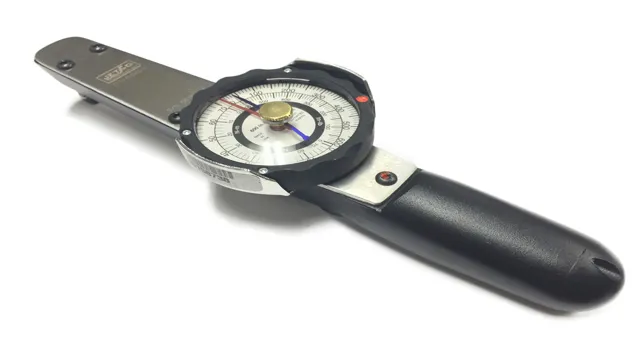
What Is Torque Wrench Accuracy?
Torque wrench accuracy is an essential factor when working with fasteners. It refers to the level of precision that a torque wrench can deliver when tightening or loosening nuts and bolts. When a torque wrench is not accurate, it can lead to under or over-tightening, which can result in severe ramifications, including damaged tools or, worse yet, serious injuries.
The accuracy of a torque wrench is rated as a percentage or a margin of error, i.e., +/- 5%.
This means that the wrench can deviate by 5% from the actual torque value. It’s crucial to choose a torque wrench that meets your needs and has a high level of accuracy to ensure that your fasteners are tightened correctly. So, always keep in mind the torque wrench accuracy while purchasing one for your toolbox.
How Is Torque Wrench Accuracy Measured?
When we talk about torque wrench accuracy, we are referring to how precisely the tool measures torque. The accuracy of a torque wrench is usually expressed as a percentage of the reading or as a certain number of units of torque. The precision of a torque wrench is crucial to ensure that bolts and nuts are tightened to the correct specifications.
To test a torque wrench’s accuracy, it must be calibrated against a known standard using a torque tester. The calibration process checks if the torque wrench is accurate at different torque settings and adjusts it accordingly. A torque wrench with higher accuracy ensures that the correct level of force is applied to fasteners, improving the mechanical assembly’s overall safety and quality.
In summary, measuring torque wrench accuracy involves calibrating the tool against a known standard to ensure that it is precisely measuring the correct amount of torque.
Types of Torque Wrenches
When it comes to torque wrenches, there are several types available, each with its own unique features and benefits. However, when it comes to accuracy, a digital torque wrench is the most reliable. Unlike traditional click or beam type wrenches, which rely on the user’s ability to hear or see the click or pointer movement, digital torque wrenches provide real-time, precise measurements that are displayed on a screen, ensuring that you can achieve the level of torque required with absolute confidence.
Additionally, digital torque wrenches often provide a range of measurement units, making them incredibly versatile and suitable for a range of applications. Whether you’re an amateur mechanic or a professional engineer, a digital torque wrench is an ideal choice when accuracy is essential.
Click-Type Torque Wrenches
When it comes to tightening bolts and nuts, using a torque wrench is essential to ensure that the right amount of force is applied. One type of torque wrench that is commonly used by mechanics and DIY enthusiasts is the click-type torque wrench. This type of wrench uses an internal mechanism that causes it to click when the appropriate amount of torque is reached.
The advantage of this type of wrench is that it is easy to use and provides consistent results. However, it is important to note that click-type torque wrenches may not be suitable for all types of bolts and nuts. Other types of torque wrenches include beam, dial, and digital torque wrenches.
Each type has its own strengths and weaknesses, so it is important to choose the right one for your specific needs. No matter which type of torque wrench you choose, it is important to use it properly by following the manufacturer’s instructions and regularly calibrating it to ensure accurate results. By using the right torque wrench and following best practices, you can ensure that your bolts and nuts are tightened to the correct specification every time.
Beam-Type Torque Wrenches
When it comes to torque wrenches, beam-type models are a popular choice. These torque wrenches are known for their simplicity and reliability, making them a go-to option for both DIY enthusiasts and professionals alike. As the name suggests, beam-type torque wrenches use a simple mechanical design that involves a beam with a marked scale and a pointer that indicates the amount of torque being applied.
The user applies force to the wrench, and the beam flexes, displaying the amount of torque being applied on the scale. This type of torque wrench is easy to use, requires minimal maintenance, and is affordable compared to other types such as digital or click torque wrenches. While they may not be as precise as some other models, beam-type torque wrenches can still provide accurate results if used correctly.
Overall, if you’re looking for an affordable and reliable torque wrench, a beam-type model might be just what you need.
Digital Torque Wrenches
Digital torque wrenches have revolutionized the way we measure torque in various applications. However, there are different types of torque wrenches available in the market that serve different purposes. Beam torque wrenches, click torque wrenches, and dial torque wrenches are among the most commonly used torque wrenches in industrial settings.
Beam torque wrenches are the simplest and affordable ones. They have a lever arm connected to a beam, and as torque is applied, the beam deflects based on the amount of force. Click torque wrenches, on the other hand, use a clicking sound to indicate when the preset torque level is reached.
Dial torque wrenches display torque values on a dial at the handle of the wrench. Lastly, digital torque wrenches use digital displays to provide accurate measurements. Overall digital torque wrenches are the most versatile and reliable type because they provide accurate readings and can store data for later reference.
Factors Affecting Torque Wrench Accuracy
When it comes to torque wrench accuracy, there are several factors that come into play. One factor to consider is the type of torque wrench being used. Generally, click-type torque wrenches are considered to be the most accurate type of torque wrench.
This is because they rely on a spring-loaded mechanism that audibly clicks when the desired torque level is reached, indicating that the bolt or nut is properly tightened. However, even with a click-type torque wrench, accuracy can be affected by factors such as the age of the wrench, the calibration process, and environmental conditions. It’s important to regularly maintain and calibrate torque wrenches to ensure accurate readings when tightening bolts or nuts.
Investing in a high-quality torque wrench and taking the time to properly maintain and calibrate it can greatly improve its accuracy and help prevent costly mistakes.
Calibration
Calibration Torque wrenches are used in a variety of industries to tighten nuts and bolts to a specific torque setting. However, it is important to remember that torque wrenches are not infallible and can become inaccurate over time. There are several factors that can affect the accuracy of a torque wrench, including the torque wrench’s design, age, maintenance, and the calibration process.
Proper calibration is crucial to ensure that a torque wrench is providing accurate readings, and should be performed regularly on all torque wrenches in use. Calibration involves checking the wrench against a standard to make sure it is reading accurately. If a torque wrench is found to be inaccurate during calibration, it may need adjustments or repairs to bring it back to its intended accuracy.
It is important to use torque wrenches that have been well-maintained and regularly calibrated to ensure the safety and accuracy of all torque applications.
Quality of Materials
When it comes to torque wrench accuracy, the quality of materials used plays a critical role. The degree to which the materials are resistant to wear and tear, corrosion, and deformation directly affects the accuracy and consistency of the tool’s measurements. For instance, a wrench made of low-quality materials may experience wear and tear more quickly and become less accurate over time.
Similarly, if it is not corrosion-resistant, it may become rusty, affecting the tool’s smooth operation and measurement accuracy. Additionally, if the materials used are not strong enough, the torque wrench may deform under high loads, reducing its effectiveness and leading to inaccurate readings. Therefore, it is essential to choose a torque wrench made with high-quality, durable, and corrosion-resistant materials to ensure maximum accuracy and consistent performance.
So, if you want to achieve the best measurement results, invest in a premium torque wrench made of quality materials that can withstand the test of time.
Recommendations for Accuracy
When it comes to finding the most accurate torque wrench, it really depends on what you need it for. A beam or pointer torque wrench is often considered the most accurate option because it doesn’t require any calibration, but it may not be suitable for every job. A hydraulic or electronic torque wrench may be more accurate in certain situations, but they do require regular calibration to maintain their accuracy.
It’s important to consider the level of precision you need and the type of work you’ll be doing before selecting a torque wrench. Ultimately, the most accurate torque wrench is the one that is properly calibrated and used correctly. Investing in a high-quality torque wrench and keeping it well-maintained can help ensure accurate and reliable results every time.
Choose the Right Type of Torque Wrench
When it comes to torque wrenches, choosing the right type is crucial for accuracy in torque application. There are a few recommendations to keep in mind to ensure that your torque wrench is functioning to the best of its ability. Firstly, a click-type torque wrench is great for general use and is easy to operate.
However, it’s important to keep in mind that these types of wrenches have a margin of error of around +/- 4%, so they may not be suitable for extremely precise tasks. For those seeking more accuracy, a beam-type torque wrench is a great option, with an accuracy range of around +/- 2%. Another recommendation is to regularly calibrate your torque wrench, ensuring that it’s working accurately and precisely.
Ultimately, choosing the right type of torque wrench and regularly maintaining it can make a significant difference in the accuracy of your torque application, ensuring top-quality and safe results.
Calibrate Your Torque Wrench Regularly
Torque Wrench Calibration Calibrating your torque wrench regularly is crucial to maintain its accuracy. Failure to do so can lead to inaccurate torque readings that can cause serious damage to your equipment or even pose a safety risk. To ensure that your torque wrench is functioning correctly, consider sending it to a professional calibration service or investing in a calibration device that allows you to do it yourself.
It’s recommended to calibrate your torque wrench every 5,000 cycles of use or at least once a year, depending on how frequently you use it. By investing in regular torque wrench calibration, you’ll have the peace of mind that your equipment is functioning accurately and reliably. So, don’t overlook the importance of torque wrench calibration if you want to maintain top-notch performance and prevent costly mistakes.
Invest in High-Quality Torque Wrenches
If you’re a mechanic or someone who regularly works with bolts and nuts, investing in high-quality torque wrenches is crucial for achieving accuracy and consistency. When it comes to torque wrench recommendations, it’s important to choose a tool that meets your specific needs. Look for wrenches with high accuracy ratings to ensure that your readings are as precise as possible.
Additionally, consider wrenches with a range of adjustable torque settings so that you can use them for a wide variety of tasks. Remember, investing in high-quality torque wrenches can save you time and money in the long run by preventing damaged bolts and minimizing the risk of injuries. So, choose wisely and you can’t go wrong!
Conclusion
After analyzing the different types of torque wrenches, it’s clear that the most accurate one is dependant on the user’s needs and preferences. However, it’s important to remember that ultimately the accuracy of any torque wrench depends on proper calibration and usage. So, don’t be a wrench in the spokes and make sure to follow the manufacturer’s instructions to achieve the most accurate results.
“
FAQs
What is a digital torque wrench and how accurate is it?
A digital torque wrench uses electronic sensing to measure torque and is considered to be one of the most accurate types of torque wrenches available on the market today.
Are beam torque wrenches accurate and how do they work?
Beam torque wrenches are accurate but less precise than digital torque wrenches. They work by using a calibrated beam to measure torque and are often used in industrial settings.
Can a click torque wrench be trusted to provide accurate readings?
Yes, a click torque wrench is a reliable and precise tool that is commonly used in automotive and mechanical applications.
What is the difference between a beam torque wrench and a click torque wrench?
The main difference is in the way they measure torque, with beam torque wrenches using a calibrated beam and click torque wrenches using a spring-loaded mechanism that clicks when the desired torque is reached.
Are hydraulic torque wrenches more accurate than electronic torque wrenches?
Both types can be accurate when properly calibrated, but hydraulic torque wrenches are generally more powerful and able to handle higher torque requirements.
How do you calibrate a torque wrench to ensure accuracy?
Torque wrenches should be checked and calibrated regularly with a torque analyzer or a torque calibration machine to ensure accurate readings.
Is it necessary to use a torque wrench for all tightening applications?
It is recommended to use a torque wrench for critical applications or where precision is required, but it may not be necessary for every tightening application.

